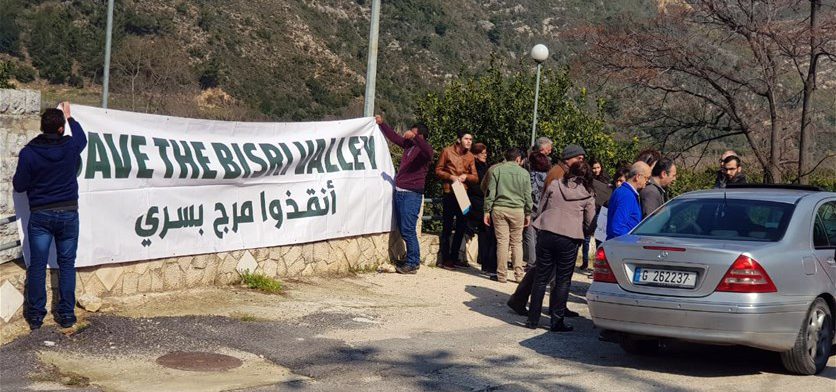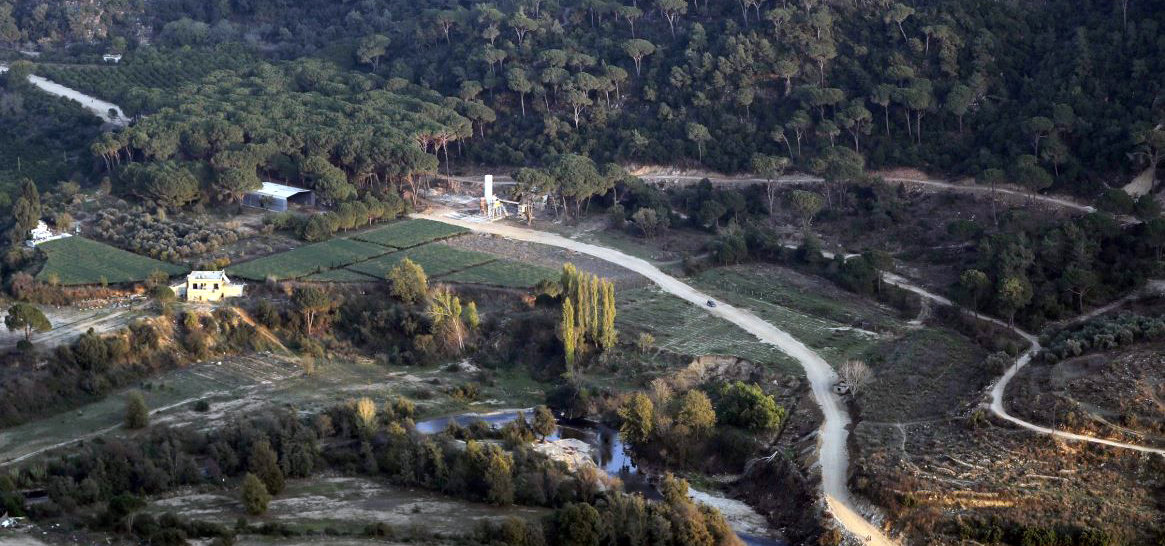Two German MPs have asked the German government to lobby against the controversial World Bank-funded Bisri Dam project, citing viable alternatives, the environmental destruction the project would entail and a high probability of corruption.
In a November letter to the Gerd Muller, the German Minister for Economic Cooperation and Development, Green Party MPs Katrin Goering-Eckart and Uwe Kekeritz said the project was an example of the “failed policy” that Lebanese citizens have taken to the streets to oppose.
“In light of the popular protests against corruption and mismanagement, we must question the Federal Republic of Germany’s current measures in Lebanon as well as where we can expand our involvement,” the letter says.
The MPs urged Muller to ask Germany’s representative on the World Bank’s Board of Directors questions about the project “and either present your alternative approach to colleagues of other countries or work on a plan with local citizens.”
In a reply from Muller’s office in January, the ministry downplayed concerns and said that two inquiries had taken place via the World Bank’s inquiry panel and had found “nothing to complain about.”
The ministry said that Germany, as shareholder of the bank, had “no opportunity to re-asses a project after the supervisory board decision and complaint procedures have been completed.”
“However, we will try to discuss the project again with other shareholders and the World Bank,” the ministry said.
It added that the World Bank should also re-discuss the project with the Lebanese government to make the Bisri project “part of the reform package that is being renegotiated between the Lebanese government and civil society and will be accompanied by the international community in a new framework under new conditions.”
The Bisri Dam project, adopted by Lebanon’s Cabinet in 2014, has been touted as necessary in order to supply some 1.6 million people living in greater Beirut with drinking water.
Activists and civil society have opposed the $600 million project over the large environmental destruction it would cause by cutting tens of thousands of trees, as well as the destruction of archaeological remains in the valley dating all the way back to the Bronze age.
See also:
The Bisri Dam Project in Lebanon is a “Ticking Atomic Bomb”
An advisor to MP Goering Eckhart told Beirut Today in emailed remarks that the MP has spoken directly with World Bank management about the project. “Unfortunately, the [World Bank] are so far not willing to reverse their faulty decision,” the MPs office said.
The advisor claimed that the German Ministry of Economic Cooperation and Development was “doubting its support, hence the face-saving exit options mentioned towards the end in their response letter. Even halfheartedly questioning their own prior decisions in such a letter is very uncommon for the government and indicates that they are not happy with it.”
The source added that MPs Goering-Eckart and Kekeritz were considering further options to push against the project.
“The new Lebanese government needs financial support from Germany and other EU countries. We trust that our government has no intention to throw more money after a project that is doomed to fail and strengthen corrupt practices in Lebanon even further,” said the advisor.
Opposition to the Bisri Dam project, launched in earnest in 2018 with the National Campaign to Protect the Bisri Valley, has come to feature prominently in the unprecedented nationwide uprising in Lebanon that began on Oct 17 2019.

Activists have been camped out in the Bisri Valley over most of the past three months since they entered on Nov. 9 2019, breaking through barriers and tearing down fences set up by contractors who had begun cutting trees ahead of construction works.
The MPs office said that the Green Party MPs had heard about the project from local Bisri Dam activists – a testament to the far reach of the campaign.
“We think this is one of the first fruits of our campaign at the international level,” Roland Nassour, the director of the campaign, told Beirut Today.
“I think it’s a really large step, an exceptional achievement at level of public opinion as well as with important stakeholders, as we just saw with the Germans,” He said. “We know its going to be a long fight but we’re getting much closer.”
Work on the project has been stalled over the last months due to the uprising. Nassour says he expects renewed attempts by the contractors to begin work in spring “but we are also expecting that the Lebanese people won’t allow that to happen.”


